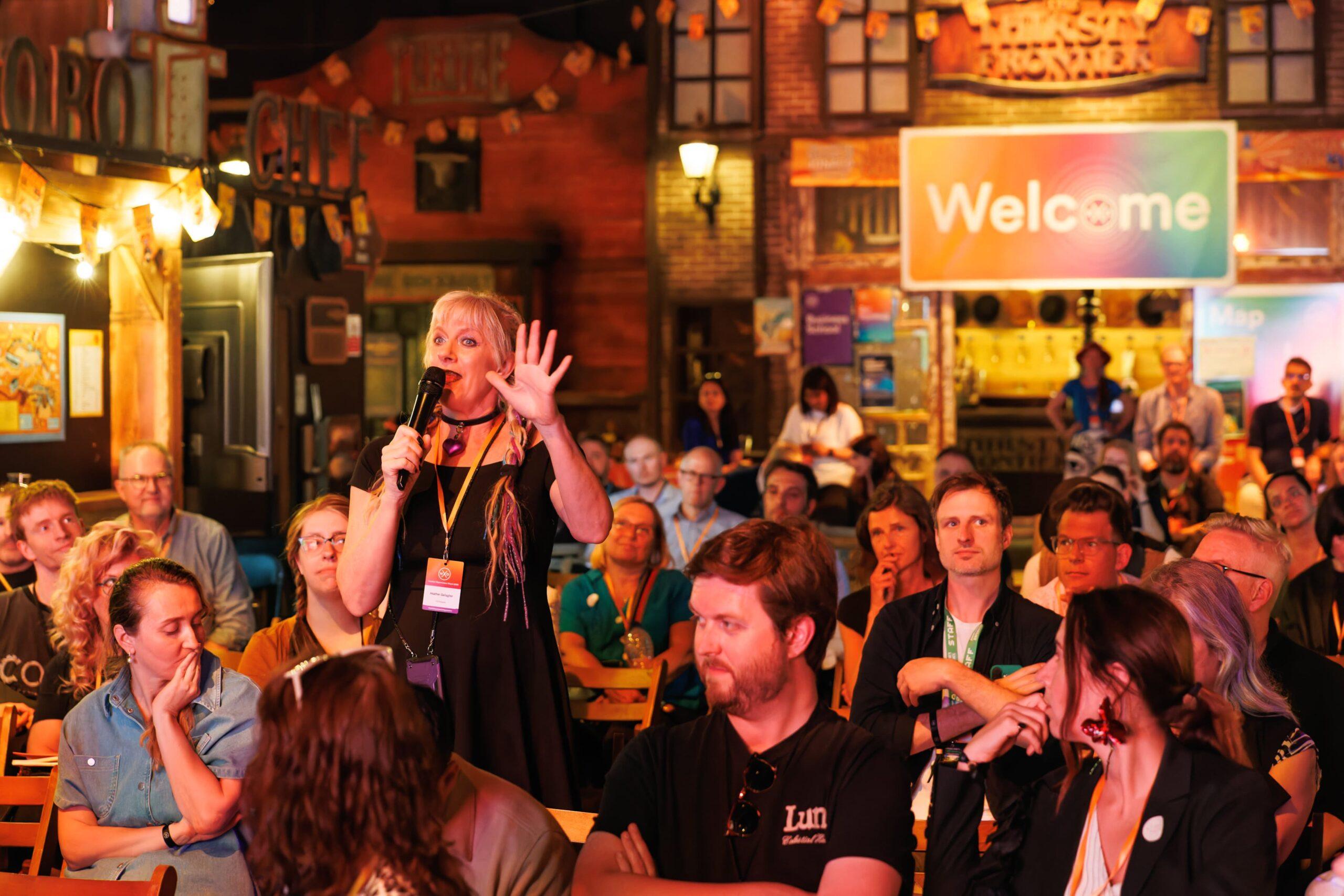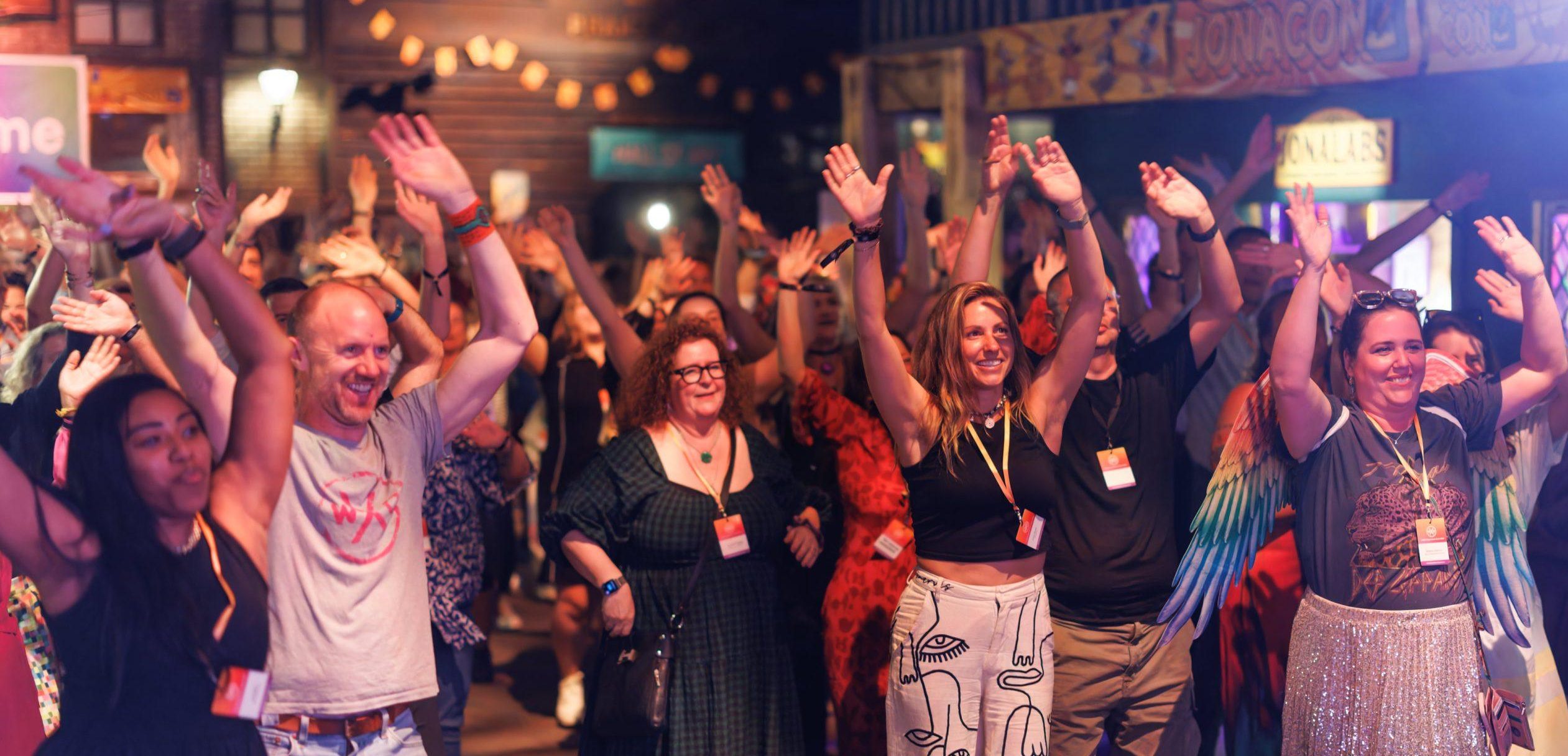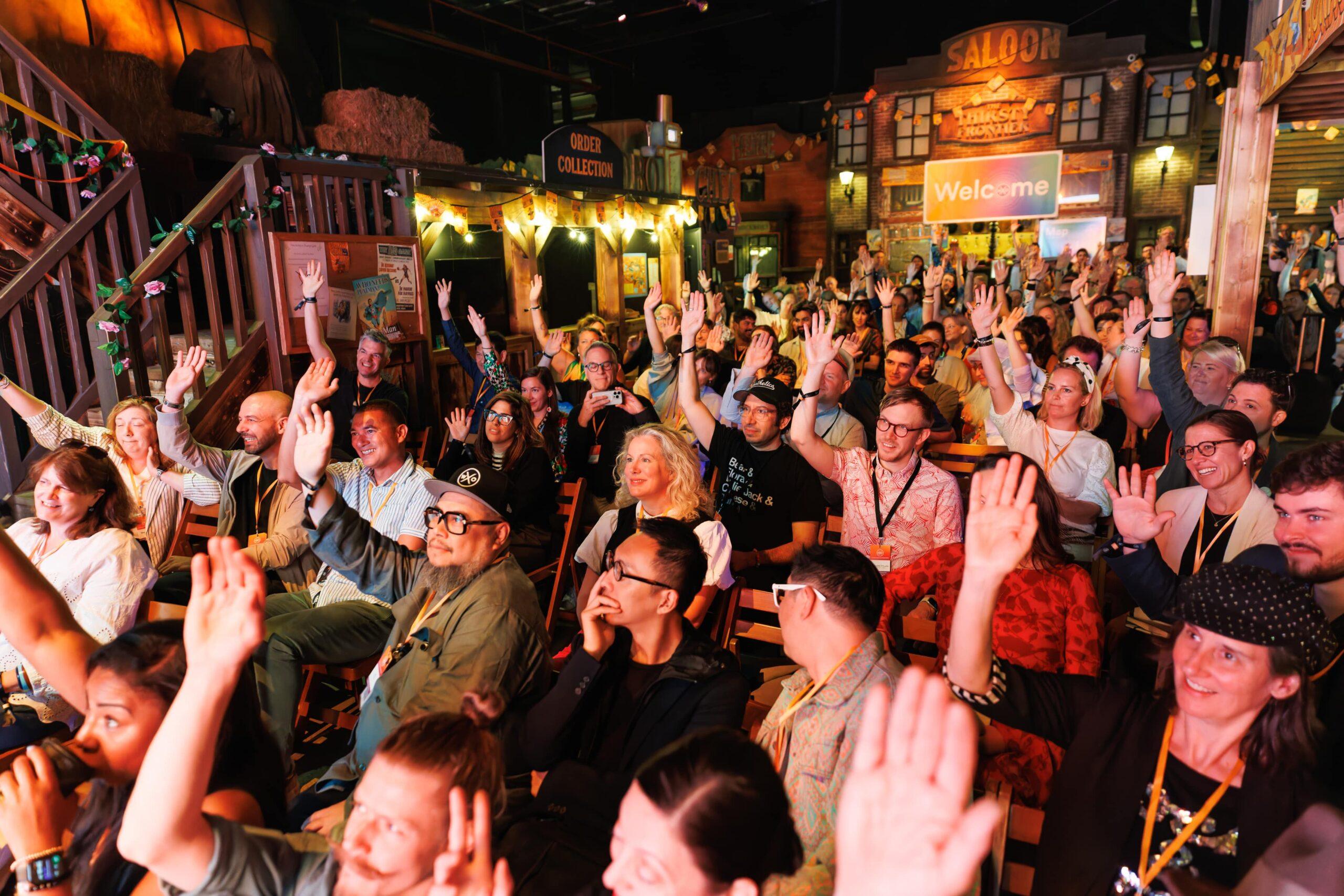At The WXO, we want to connect the dots across the Experience Economy and across the globe – so each month, we’ll be bringing you our round-up of the experiential stories that we think reveal something interesting, relevant or transferrable about the Experience Economy.
Welcome to the latest Experience Radar, where we’re designing a theme park at Merlin’s Engineering Academy, getting tips on designing for customer loyalty, and engaging with mitochondria at Somerset House.
1. Merlin Launches Engineering Academy
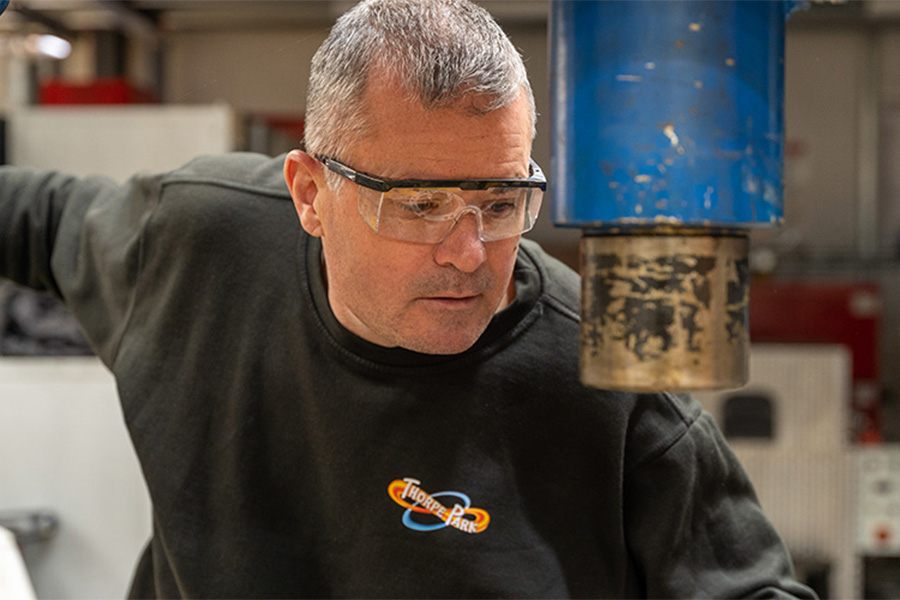
Seeking to nurture the next generation of theme park designers, Merlin Entertainments has launched its inaugural Engineering Academy for aspiring theme park engineers. As reported by BlooLoop, the initiative will debut in the UK this year with a three-year programme for a group of 12 apprentices, who will take an “immersive learning journey” that includes theoretical knowledge and practical experience. The lucky dozen will have access to a structured curriculum and on-site training facilities at Merlin attractions across the UK, including Alton Towers and Thorpe Park. The academy will also provide training for Merlin’s current engineers who are looking to learn new skills.
Merlin is collaborating with UK educational institutions on the project including the JCB Academy in Rocester, New City College in London and East Surrey College. “Our Engineering Academy is a testament to our resolute belief in education’s transformative power,” Michael Jones, head of Merlin’s Engineering Academy, told BlooLoop. “We’re not just cultivating engineers; we’re fostering innovators and pioneers who will shape the future of entertainment. We invite both fresh talent and existing Merlin staff to join us in this exhilarating journey of learning, growth, and pushing the boundaries of what’s possible.”
2. City Of Venice To Charge Day Trippers

If you’d like to spend the day ambling around Venice, exploring the floating city’s embarrassment of artistic and architectural riches, then you might soon have to pay for the privilege. As reported by the BBC, the city of Venice has approved the trial of a €5 fee for daily visitors, in a bid to control tourist numbers. All visitors over 14 will have to pay the charge and book their entry to the city in advance. The trial will run during peak tourist periods next year. “Venice is among the most visited European cities, so suffers the most from excess tourism,” city council member for tourism, Simone Venturini, told the BBC.
Excess tourism has become a pressing issue for Venice in recent years. While just 2.7 square miles in size, La Serenissima welcomed a staggering 13 million tourists in 2019, according to the Italian national statistics institute. Visitor numbers are expected to exceed pre-pandemic levels in the coming years. Travellers who stay overnight in the city will be exempt from the fee. “The objective is to invite daily tourists to choose off-peak days. We want to test the fee and, if needed, improve it,” Venturini said. Unesco is pushing for Venice to be added to a list of world heritage sites in danger, as the impact of climate change and mass tourism from cruise ships threaten to cause irreversible damage to it.
3. Roblox Wants To Become A Dating Hub

Not content with ruling the roost when it comes to metaverse gaming platforms, Roblox also wants to become an online hub where adults meet and mingle. As reported by The Verge, Roblox wants to move beyond being an app for kids and is seeking to evolve into a platform that’s regularly used for online dating. The firm’s CEO, David Baszucki, predicts that “thousands of adults” will meet and form “real-life relationships” in dating experiences on the platform over the next five years. While the claim might seem far-fetched, it’s not as unlikely as it might sound. Roblox recently added experiences that can only be played by users over 17, which would allow for adult-only interactions.
Next year, the platform is planning to release an AI-powered tool that would let users make an avatar with an image and a text prompt, helping gamers to create more realistic online versions of themselves. Once connections are established, users will be able to talk via Roblox Connect, the platform’s soon-to-launch video chat feature. Baszucki also predicts that Roblox will be increasingly used in the recruitment process, as an educational tool in schools, and as a talent-spotting platform for musicians and fashion designers.
4. Ticknovate Rebrands Due To Experience Economy

Keen to capitalise on the burgeoning Experience Economy, ticketing platform Ticknovate has rebranded to Expian as it evolves to meet the experience-centric demands of modern consumers. As reported by B Daily, the firm’s new branding reflects how ticket-booking technology is shaking up the way consumers book leisure attractions, events and journeys. With Millennials and Gen Z consumers valuing experiences and memories over merchandise, the Experience Economy is booming – the location-based entertainment market is predicted to be worth £17.7 billion by the end of the decade with a CAGR of 26%.
Describing itself as a “first-of-its-kind” booking platform that aims to be “intuitive, easy-to-use, and easy to manage”, Expian’s booking software was created in response to a brief from UK tour company City Cruises, which was in need of a system that would entice its four million customers to spend more. The rebrand highlights Expian’s goal to take admission ticketing solutions up a gear by incorporating AI and emerging tech to support ferry operators and leisure brands to expand their offer, while improving the customer experience.
5. How To Design For Customer Loyalty

With the market being flooded with immersive experiences and consumers becoming increasingly demanding when it comes to their free time, there has never been a greater need to design experiences that keep them coming back. The key, according to BlooLoop, lies in engaging guests at every point of the experience and giving them a reason to become advocates. For Craig Smith, head of production at Grande Experiences, killer content is key. “Quality content is the starting point, but ensuring a new method to engage the visitor is critical. This comes from the narrative, display methods and flow, and allows for a new experience even if the infrastructure remains the same,” he said.
Gary Moynihan, head of creative experiences at Grande Experiences, believes originality is vital if you want repeat business. “Content can do much of the heavy lifting, so create something no one else can. That can be a unique subject matter, developed in partnership with experts of that genre, or original artwork in collaboration with an artist,” he said. “Regular resets of content and periodic physical refits can help to redefine the visitor experience, drive return visits, and nurture a sense of community among stakeholders and audiences.” The goal for experience designers should be to create sociable moments that work for a multigenerational audience by crafting stories that resonate, engage, and leave an indelible mark on each visitor to keep drawing them back.
6. How VR Is Helping To Educate Care Workers
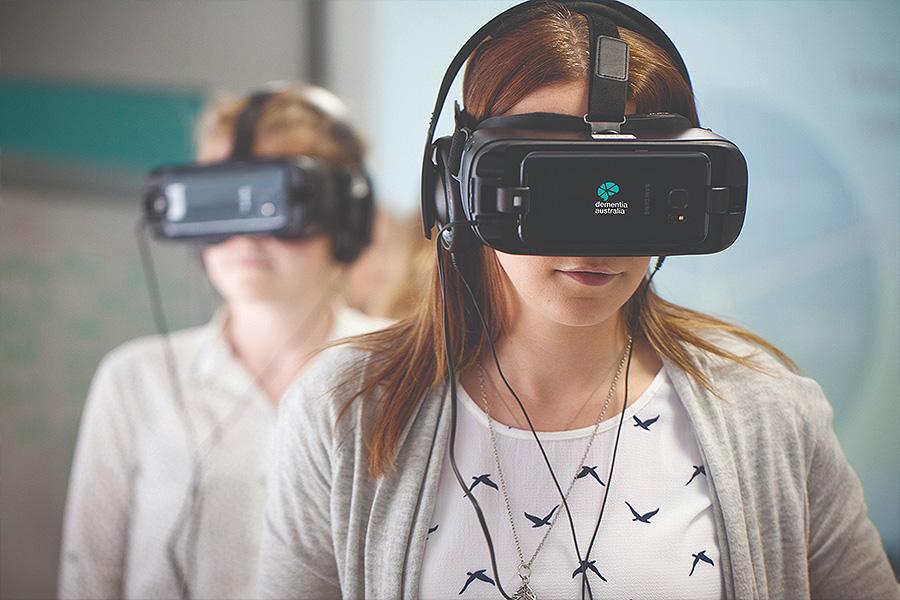
While VR is helping to transform the entertainment industry it is also being harnessed to improve the patient experience. As reported by Hello Care, new technology inspired by VR and gaming is being offered to care workers in Australia to better educate them on caring for older people with dementia. As part of a partnership with Dementia Australia and the Goodwin House aged care facility in Canberra, care workers have been given access to the VR training tool called the Educational Dementia Immersive Experience (EDIE), which is based on 20 people’s lived experience with dementia. Via a VR headset the care worker enters the world of the person living with dementia for 20 minutes.
Staff begin the gaming experience as the character Edie and are tasked with navigating the path from his bedroom to the bathroom at night while grappling with the often confronting symptoms of those with dementia, including a narrow field of view and wallpaper and carpet patterns that move. In the VR experience floor patterns morph into scrambling cockroaches under Edie’s feet to mirror the hallucinations experienced by dementia sufferers, and Edie’s heart rate and breathing speed up as a result. It’s hoped that the training will help care workers better understand the lived experiences of residents with dementia, making them more compassionate and better able to care for them.
7. Sci-Fi Smash Comes To Somerset House
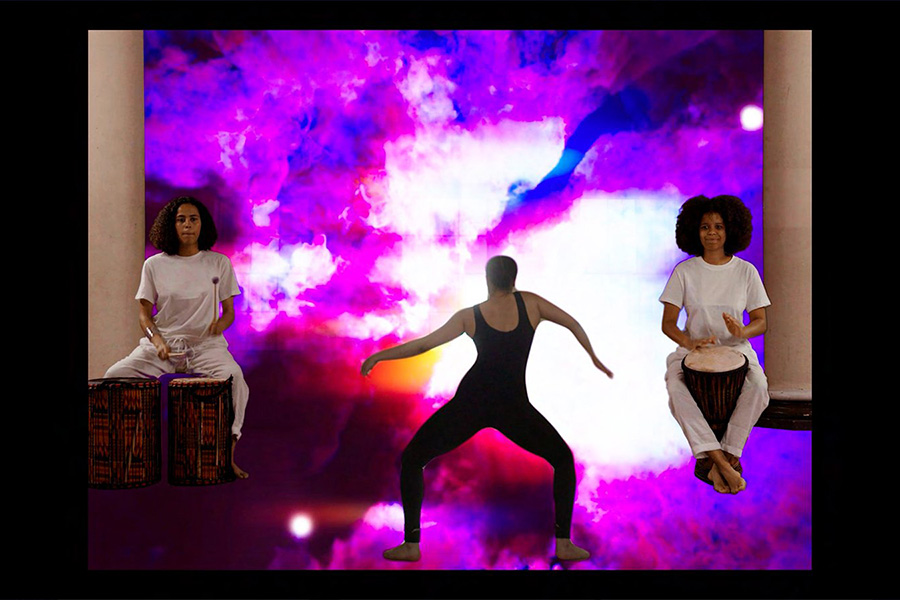
A new sci-fi-themed exhibition is ending its run at Somerset House this month. Called Three Parent Child, the show is Somerset House Studios resident Sonya Dyer’s first solo exhibition in London. Representing the final stage of Dyer’s Andromeda trilogy, Three Parent Child forms part of Dyer’s ongoing project Hailing Frequencies Open, which reimagines the history and radical potential of human space travel, exploring the intersections between scientific enquiry and science fiction. In the exhibition, Dyer weaves influences including Star Trek and mythology to engage with ongoing conversations around monumentalism, memory and the role of speculation.
Running until 12 November, Three Parent Child comprises two works. Action > Potential is a two-channel moving image artwork centred around Andromeda, who is trying to return home to her galaxy after unexpectedly finding herself in a science lab. The work is said to embody the reclamation of the neglected stories of Black women of science and mythology. The other work, Lucy, is a large-scale sculpture of rogue mitochondria that mutates across the three River Room spaces and transforms into new forms. Three Parent Child takes its name from Mitochondrial replacement therapy (MRT), a technique that incorporates DNA from three people to create a child.



